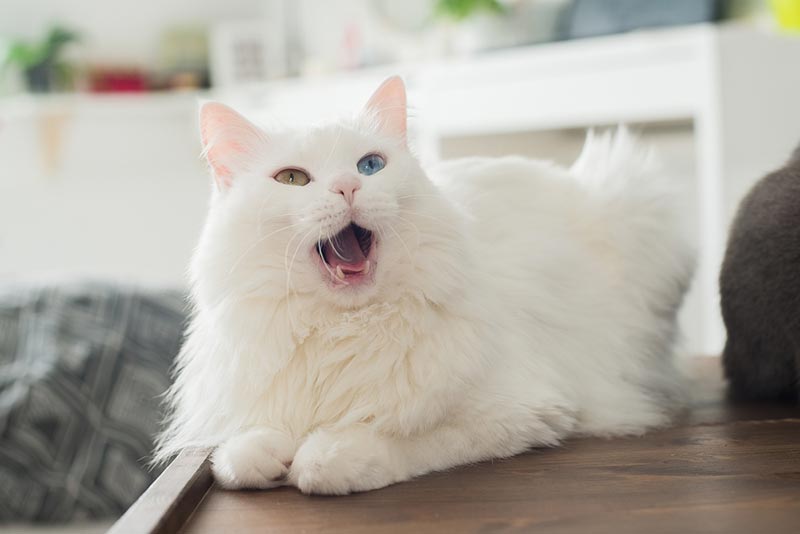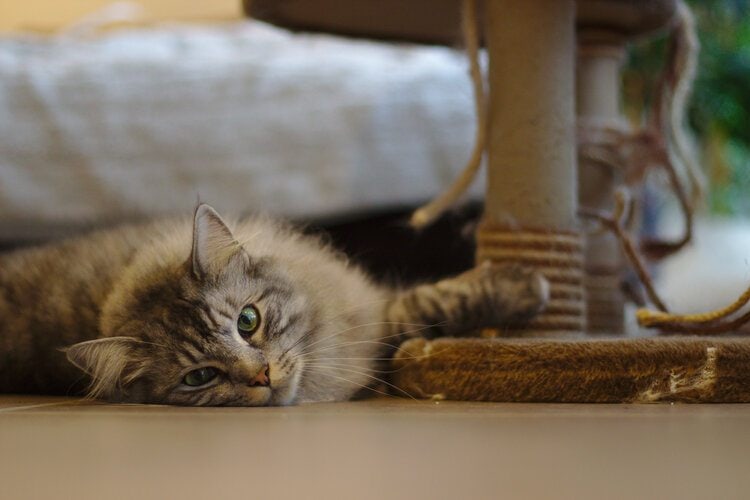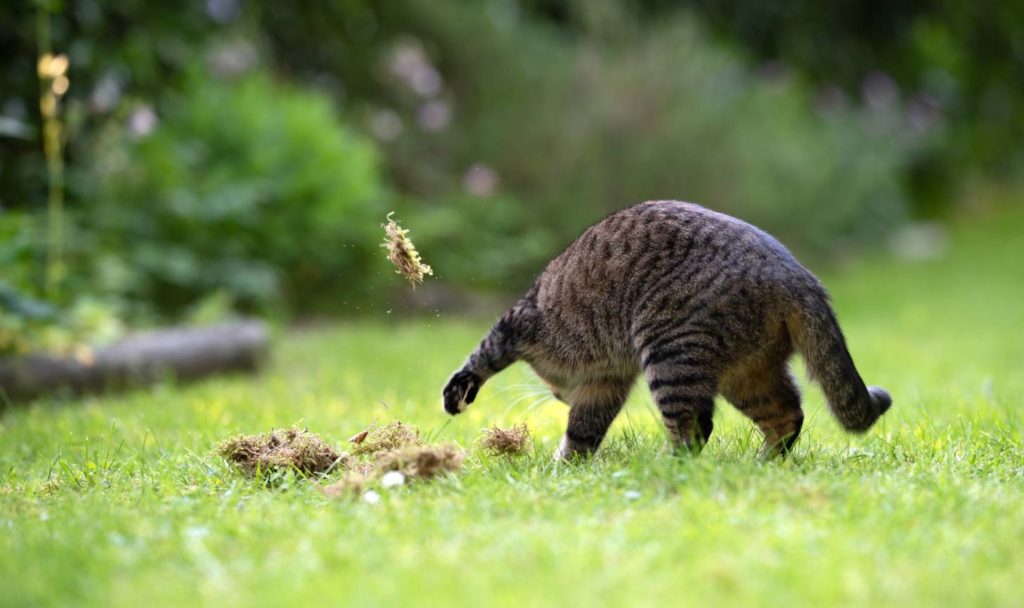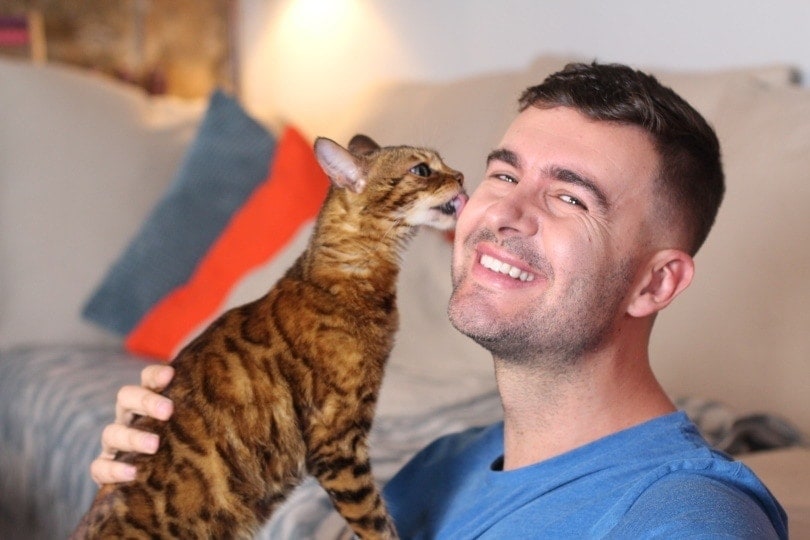VET APPROVED

The information is current and up-to-date in accordance with the latest veterinarian research.
Learn more »Click to Skip Ahead
As we all know, meowing and rubbing against objects is a typical behavior that cats exhibit daily. But every pet parent wonders when this behavior stops being normal and becomes a cause of worry. If you suspect your cat may be suffering from an underlying medical condition, meowing and rubbing can become one of the visible signs. Monitor your cat’s behavior, and if it shows any other signs of discomfort, take it to the vet for a check-up.
Meowing and rubbing are usually part of normal cat behavior and might even be a sign of affection. In the article below, you can read more about normal and irregular behavior so you know precisely when to worry and when to remain calm.

Why Do Cats Meow?
There are several reasons why cats might meow excessively, and before you start worrying, check out these common situations when cats might meow. If you’ve been gone for several hours and returned home to your cat that greets you at the door, this would probably be one occasion when your cat won’t stop meowing. It may also be overly vocal to attract your attention if it feels playful. Most cats will meow to try and communicate with you, so follow the clues to find out what your cat is trying to say.
It might be hungry or simply want some outdoor time, so if it meows next to the food bowl or near the doorway, you will know for sure the reason behind this behavior. Female cats will vocalize, rub, and roll on the floor when they are in heat. These are all normal situations when your cat will meow excessively.
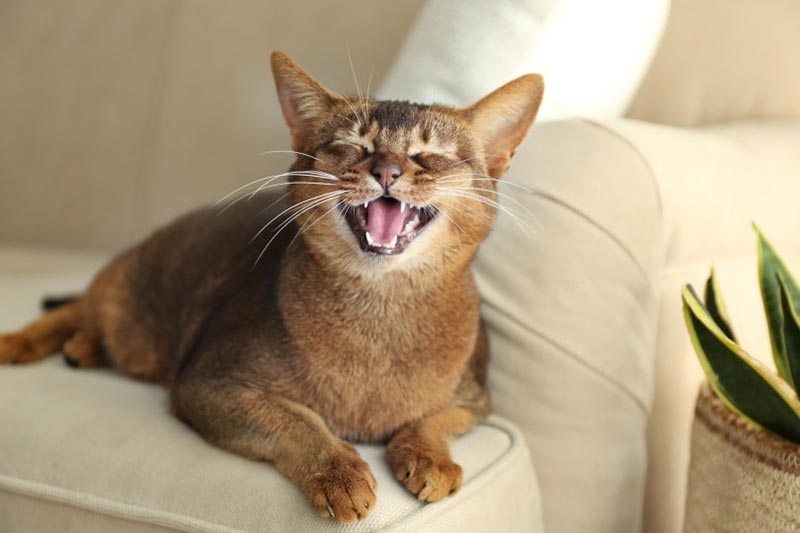
Why Do Cats Rub Against Things?
Similar to meowing, cats tend to rub against things as a form of communication. Because cats have scent glands on their heads, cheeks, chins, and tails, rubbing will ensure they leave behind their pheromones, which are chemical signals that they use to communicate with other cats. It might be a simple instinct to mark their territory or to leave a trace of pheromones when they are in heat. Rubbing against humans can also be a cat’s way of showing affection, which is behavior passed down from their mothers. If your cat rubs against you, you should be proud, as the cat is signaling their acceptance and trust.
If you notice your cat rubbing on things compulsively, trying to scratch themselves, their skin looking red or irritated, or engaging in other strange and abnormal behavior linked with rubbing or meowing, make sure to take your cat for a check-up.
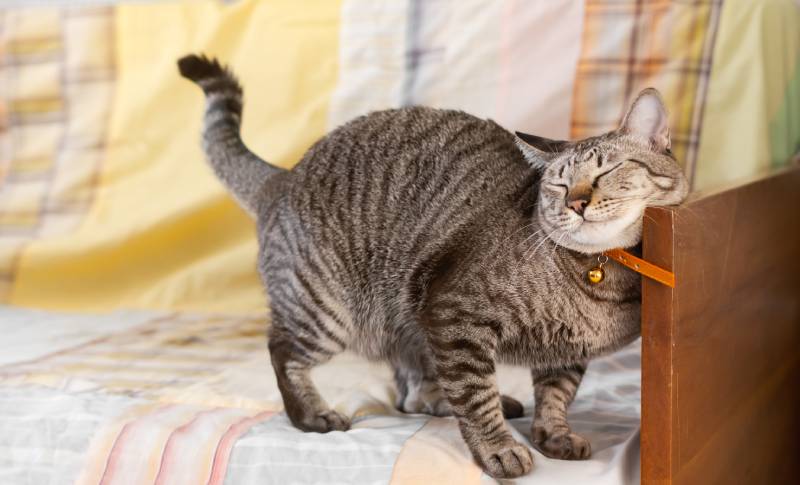
When Is Meowing and Rubbing a Reason to Worry?
Besides the usual rubbing and meowing behavior, some cats may display this behavior when something is wrong. There are certain situations when your cat begins exhibiting aggressive behavior that can indicate medical conditions, so make sure to stay alert for the following signs, along with excessive meowing or rubbing:
- Loss of appetite or an increased appetite
- Hair loss
- Vomiting
- Overgrooming
- Confusion
- Diarrhea
- Irregular drinking habits
- Lethargy
- Lameness or stiff gait
Itchy skin can make your cat overly vocal or rub against the floor. Your cats may rub against things and become extremely vocal if they have a flea problem, allergies, or an ear infection, causing them to itch and hurt. If your cat meows or rubs while exhibiting any of the above signs, a trip to the vet would be recommended. These conditions are not life-threatening, but your cat probably feels discomfort and even pain, so it is crucial to help it as soon as possible.

Final Thoughts
Once you learn about cat behavior that is considered normal, you will be able to rule out any cause for worry. As you know, meowing is entirely expected when a cat is in heat and wants to greet you or attract your attention, but when you notice a loss of appetite in your cat, overgrooming, or any other strange behavior accompanying this, it might be time to take your cat to the vet.
Featured Image Credit: Helen Bloom, Shutterstock
